Workers' Strike At Iran’s Arak Machinery Manufacturing Gains Momentum
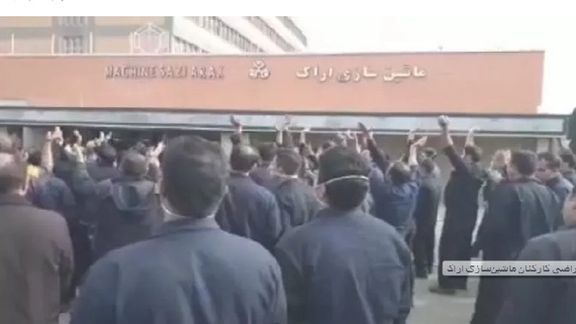
Protesting workers at Iran's Arak Machinery Manufacturing who are refusing to work over wage disputes reached new levels of intensity on Thursday.

Protesting workers at Iran's Arak Machinery Manufacturing who are refusing to work over wage disputes reached new levels of intensity on Thursday.
According to the Telegram channel Bazaar Civil Protest, the worker's protest at the factory, also known as Machine Sazi Arak, gained momentum as the strikers insist that they will not stop until they receive their rightful wages.
Over the past few months, the facility's workforce has staged several strikes over low wages - typically less than $200 per month - and other labor-related concerns. On April 21st, they synchronized their strike action with workers from at least 16 oil and industrial units as a collective and symbolic protest.
Within the past year, Iran has witnessed over 1,600 labor rallies and strikes. However, the Islamic Republic's security and judicial authorities have responded by summoning, arresting, and incarcerating numerous labor activists, aiming to quell dissent.
Authorities contend that the orchestrated strikes are instigated by anti-regime groups, an often-used excuse that only undermines the legitimacy of workers' demands without addressing them. Persistent strikes add to escalating tensions and Iran’s ailing economy but with no action taken regarding workers’ demands, there seems to be no imminent resolution in sight.
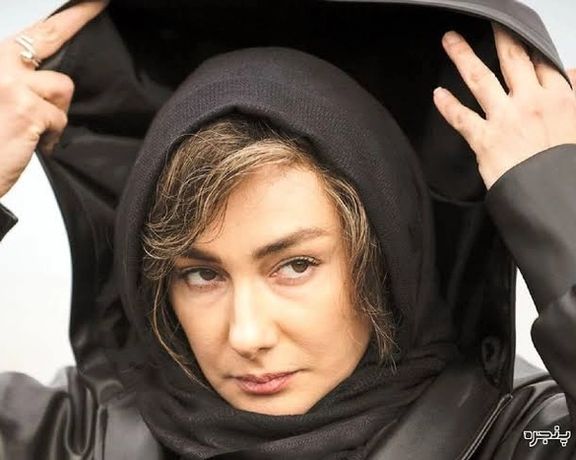
Actress Hanieh Tavassoli says that religious authority and the power of clericalism is losing its grip in Iran, commenting on Kamal Tabrizi's 2004 film Marmoulak (The Lizard).
Tavassoli hailed Tabrizi's film as one of Iran's most significant comedic works saying, "Your words are so true today, Mr. Tabrizi. It's evident that the perspective on clericalism has shifted. It's a different era."
These comments come after Tabrizi’s recent interview about the evolving outlook of today's generation towards the dominant clerical authority in Iran. "Today's generation has a different perspective on the clerical class that is not in line with the world of Marmoulak and its satire,” he said.
Marmoulak, released in 2004, offers a portrayal of humorous situations, including a character adopting clerical attire for thieving purposes. However, despite its sarcastic undertones, the film ultimately defends the clergy and their societal role.
Tavassoli further expressed her thoughts on her Instagram story, stating, "Our cinema is far behind today's intelligent, rebellious, and courageous youth and society. Cinema should freely follow this generation's footsteps to catch up with them in a few years. Everything comes down to these three shining words: Woman, Life, Freedom."
The ongoing nationwide Woman, Life, Freedom protests have seen demonstrators expressing their sentiments against the clergy and defiantly removing the hijab as a form of protest.
Since the 1979 revolution, the clergy have gained increasing power in Iran. However, discontent has surged in recent years, particularly amid waves of protests concerning economic, political, and civil rights issues.

Iran’s Ministry of Industry’s annual report has revealed a 17% decrease in online purchases and e-commerce transactions over the past Iranian year, ended March 20.
The report, produced by the Center for E-commerce Development, states that since March 2022, the number of transactions has fallen from approximately 3.6 billion to 3 billion transactions, potentially attributed to extensive internet disruptions and outages witnessed across Iran since September.
In June, the Tehran E-commerce Association sounded alarm regarding the "critical state" of internet quality in Iran, identifying the primary obstacle as "widespread and persistent disruptions affecting all IPs and websites."
A separate section of the report, delved into social network and messaging app preferences among e-commerce entities. Instagram emerged as the dominant player, commanding a substantial 55% usage share. However, since September, this popular social network has been banned in Iran.
Telegram, subject to filtering in Iran since 2019, secured the runner-up position with 41% of usage, while WhatsApp, also blocked since 2022, accounted for a 37% share.
This disruption comes in the wake of protests that began last year and are set to rise again on the anniversary of Mahsa Amini’s death in detention of the morality police.
Furthermore, amidst the backdrop of nationwide protests, a significant "80% of users within the country" have said they have to use VPN or proxy services to access social networks.

Women's rights activists imprisoned in Gilan province in northern Iran have been subjected to severe beatings and mental abuse, Iran International can reveal.
According to information obtained by Iran International, Sara Jahani, a doctor at a hospital in Rasht, refused to share her phone's passcode with authorities and was beaten for this resistance.
Meanwhile, in the Ministry of Intelligence's detention center, Hooman Taheri, a Gilan-based activist, also suffered repeated severe assaults. Days after being transferred to the public ward, he still bears visible signs of a broken tooth, extensive facial swelling, and bruises on his neck and body.
It has been reported that some detainees have been denied communication privileges and visitation rights to prevent the disclosure of abuse.
Last Thursday, the Islamic Republic's security forces arrested several women's rights activists in the cities of Rasht, Fooman, Anzali, and Lahijan.
Condemning these detentions, hundreds of activists have called for their immediate release.
As the anniversary of Mahsa Amini's death at the hands of the hijab police approaches, the government's efforts to suppress activists, students, and teachers have escalated. Security agencies have recently been summoning and issuing threats over the phone to dozens of students across Iranian universities.
Various reports also highlight security pressure on families of those killed in the uprising, aiming to prevent gatherings on the anniversary of their children's deaths as well as desecration of victims’ graves.
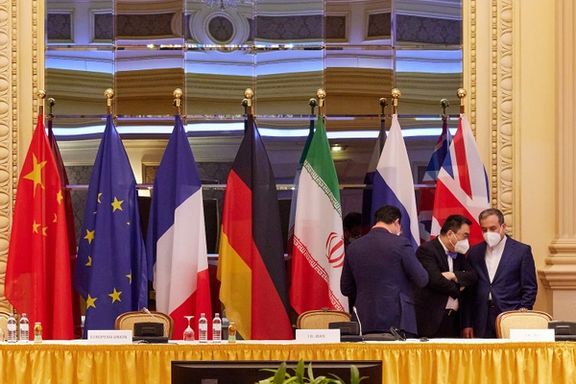
The Deputy of Iran’s Atomic Energy Organization has said that the JCPOA nuclear deal is no longer effective, especially for Europeans and the United States.
Amir-Hossein Feghhi (Feqhi) speaking to the semi-official ISNA website stated that the 2015 nuclear deal, based on what the Westerners believed, was an instrument to create a pause in Iran’s nuclear industry and to ensure that Iran does not pursue nuclear weapons. “Now, the entire world has concluded that Iran is not seeking to develop weapons, and the possibility of stopping Iran’s nuclear program no longer exists,” Feghhi emphasized.
Iran has accumulated enough enriched uranium to be able to produce several nuclear bombs, according to the experts and the International Atomic Energy Agency, the IAEA. It has effectively reached a nuclear threshold state and can use the fissile material to produce weapons possibly within months.
Feghhi, seemingly taunting the West said that now is the time to focus on economic relations, hinting at sanctions that were imposed after the United States withdrew from the JCPOA in May 2018 and imposed crippling ‘maximum pressure’ on Tehran. The enforcement of these sanctions has gradually waned during the Biden administration, enabling Iran to boost its oil exports to almost pre-sanctions level, while enriching uranium to dangerous levels.
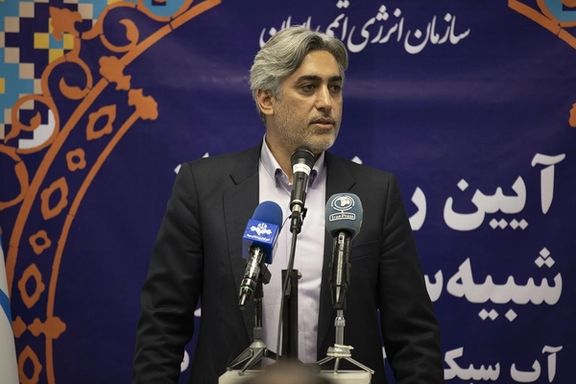
He went on to say that “Iran used to negotiate for its undeniable right to enrichment and also for the removal of sanctions.” However, “we have moved past all these discussions. There is no one in the world who can reject Iran’s nuclear capability or claim it can be halted.” Regarding the sanctions, Feghhi said, “I believe shared economic interests should be the subject of negotiation.”
Earlier this month Washington agreed to release $6 billion of Iran’s money frozen in South Korea due to US sanctions, in exchange to free five American citizens held hostage in Tehran. In June, the US had also agreed to release $2.7 billion from Iraqi banks.
Many observers suspect that the Biden administration has reached an unofficial deal with the Islamic Republic to release nearly $20 billion in total and not enforce oil export sanctions if Tehran stops at 60-percent uranium enrichment, which is just short of weapons-grade material.
This in effect leaves Iran in a strong position, able to extract more concessions by threatening to breach an unwritten deal in the future.
Candidate Joe Biden announced in September 2020 that if elected President he would restore the JCPOA, signaling an end to former President Donald Trump’s maximum pressure policy. Immediately Iran’s illicit oil exports to China began to increase.
Days after the election, Iran’s parliament tabled a bill to obligate the government to increase the level of enrichment closer to weapons grade until the US would lift the sanctions. In early 2021, enrichment reached 20 percent and soon 60 percent levels, but the Biden administration entered talks with Tehran over the JCPOA in Vienna in April. After 18 months of protracted talks in Vienna the sides reached a deadlock, as Iran refused the last compromise offered by the European Union.
Biden seems not to have realized that Iran took advantage of his desire to restore the JCPOA to both evade sanctions and reach the nuclear threshold.
Iran’s nuclear deputy drove the point home, stating, We now comprehensive capabilities in the nuclear field, covering nearly all its dimensions and research and industrial sectors. We are well aware of what we possess, and of course, nuclear experts in advanced countries are also well aware of this, and they convey it to their policymakers as well.“
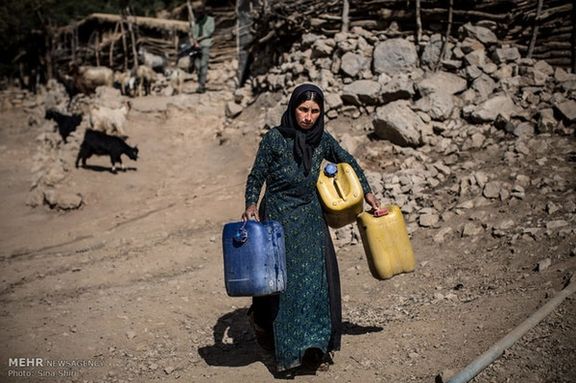
While the head of Iran's wealth fund issued a dire warning about future, the president pledged to provide "free" water, electricity, and gas to low-income households.
President Ebrahim Raisi made the claim during a press conference on Tuesday, stating "Providing free water, electricity, and gas to low-income families is on the government's agenda."
The president also claimed that "health insurance has been provided for six million people in the country for free."
"The government is cares about paying subsidies, providing housing for the deprived strata, as well as allocating land and providing facilities to the low-income households," he said, adding that “we have been committed to what we have said in the elections, and we will be; we have not forgotten any of those promises, and we will not forget them.”
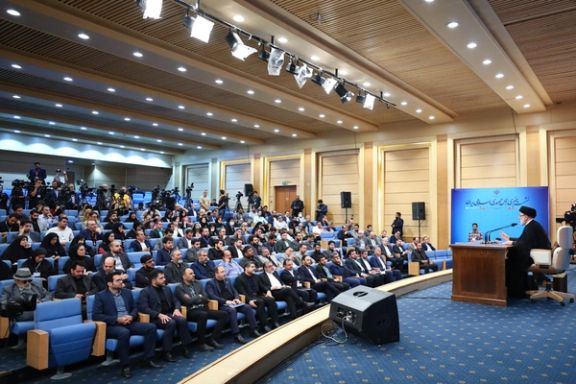
A day earlier, Mehdi Ghazanfari, the head of Iran's National Development Fund, warned that "people are worried about the day when we become servants of neighboring countries" because they are progressing rapidly, and Iran is not.
Highlighting that the regime only attaches importance to "military strength" as an element of national power, he warned that if Iran neglects "economic development coupled with high growth rates" it might become a country "devoid of its human resources and investment opportunities."
Ghazanfari said a new type of colonialism may take place in Iran in the face of prosperous and wealthy neighboring nations. “If the current trend persists in Iran, it may become a country in the future that imports gas from Turkmenistan, wheat from Saudi Arabia, depends on Oman and Qatar for medical services and Qatar, and on the UAE for maritime and aerial logistics,” he warned.
Raisi’s remarks were reminiscent of promises by the Islamic Republic’s founder Ruhollah Khomeini, who famously promised Iranians free electricity, water and a cash share of the oil export income in his first speech upon arrival to the country after exile during the 1979 revolution. Khomeini made a variety of promises to Iranians for his Islamic regime such as a popularly elected governments that would represent the people without the interference of the clergy in addition to abolishing homelessness.

Since the historic speech in February 1979, Iranian officials have made similar promises over the years, with former President Hassan Rouhani even claiming that he had managed to achieve these goals. Rouhani claimed in December 2020 that his government had realized Khomeini’s promise, providing low-income strata of the society with water, gas, and electricity free-of-charge.
Iran has survived on oil export revenues during 44 years of clerical rule and has used the income to provide tens of billion of dollars in subsidies to the population each year, while maintaining an unproductive, government controlled economy. The lack of planned and sustained economic growth, a closed economy not attractive for foreign investment and various foreign economic sanctions have led to the current crisis marked by very high inflation, low economic growth and increasing poverty.
Rouhani officials repeated bogus claims of more subsidies, with his government spokesman Ali Rabiei saying that some 35 percent of the country’s population – about 30 million people – had access to free utilities. “We supplied people with free gas, but we became self-sufficient in gas production beforehand so that we can meet the domestic demand in winter and even be able to export,” he said in 2020, a claim that contradicted reality, as more than 30 million Iranians live below the poverty line.
Elsewhere in his press conference, Raisi made other claims about the reduction in inflationary pace, a higher growth rate, and reduction in the unemployment rate.
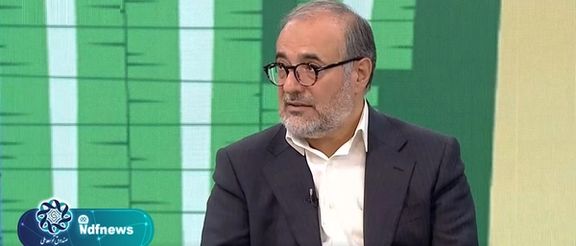
Over the past few years, many economists have warned about capital flight and the emigration of elites and skilled workers from Iran due to the Islamic Republic's policies.
The cost of living in Iran, including electricity, water, and gas bills, has consistently risen over the years and the majority of Iranians have fallen into poverty, no longer being able to afford meat and even fruit and vegetables, with consumption dropping by half.
The Islamic Republic has been struggling with high inflation since at least 2019, but the raging inflation in the past Iranian year which ended on March 20, was seriously different from previous years. Currently the official annual inflation rate is nearly 50 percent – the highest rate in Iran for more than 30 years-- but prices for foodstuff are most affected with some categories doubling or tripling in the past 12 months. The devaluation of Iran’s rial from 260,000 per US dollar to about 500,000 this year signals even higher economic woes for the people.






